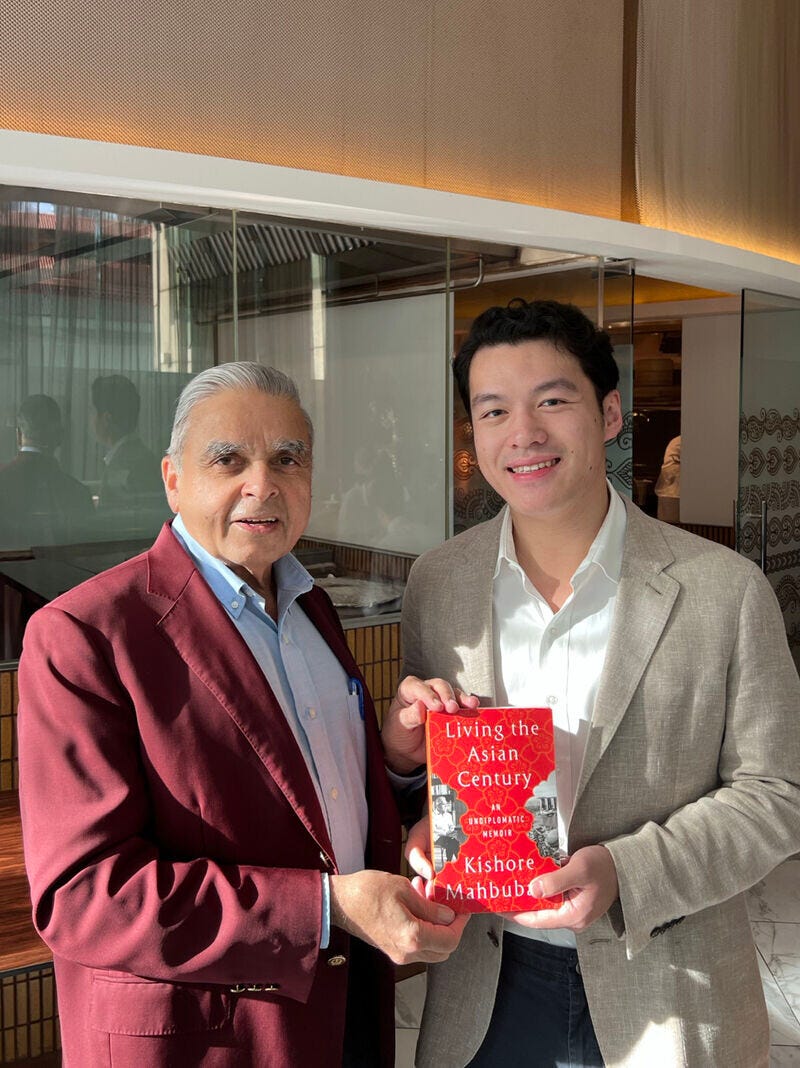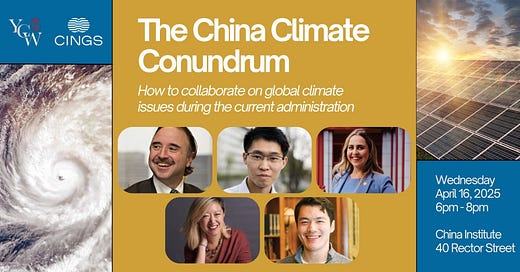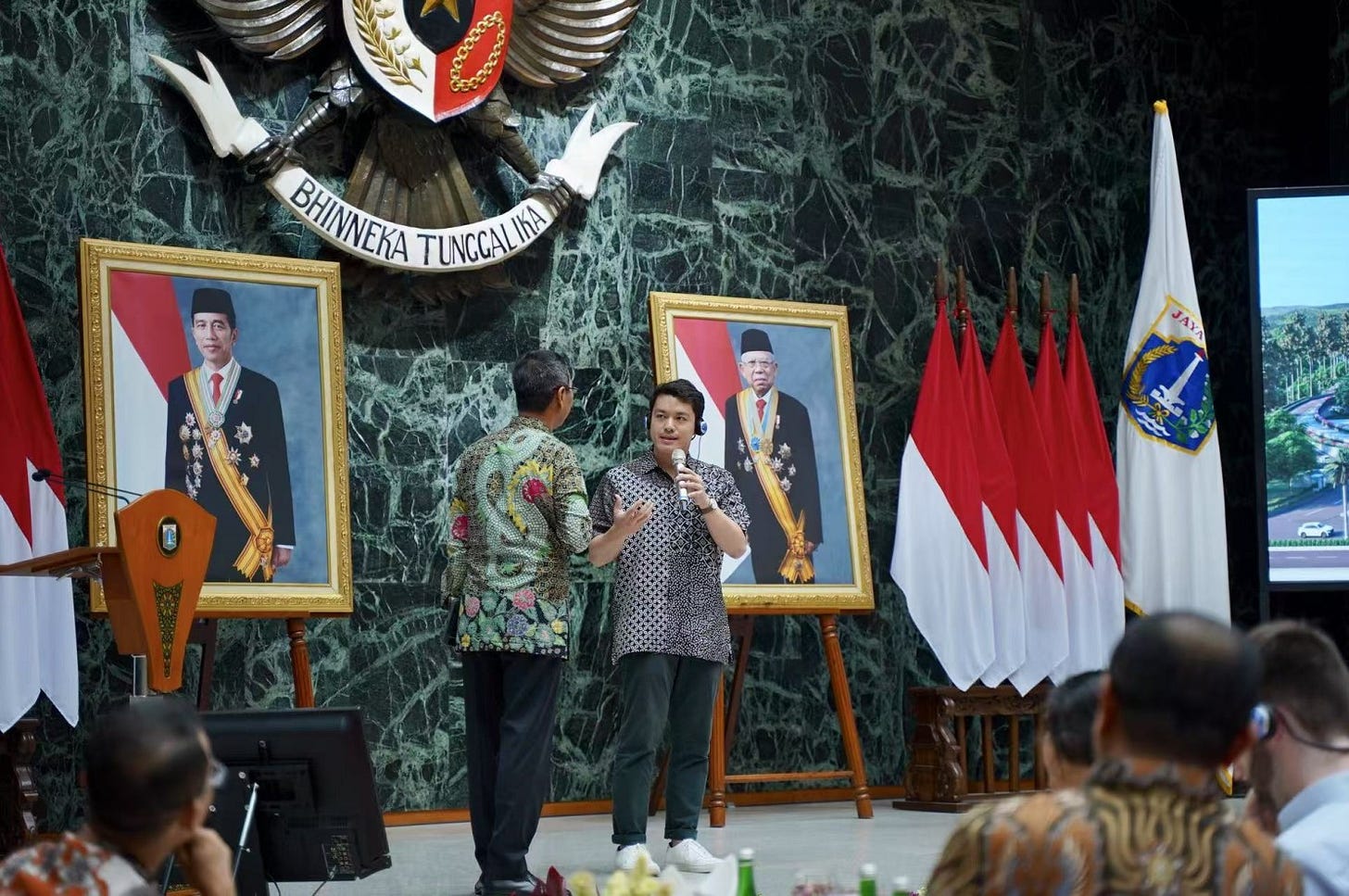Bridging Boundaries: Kevin Zongzhe Li on Climate Cooperation and Sustainable Future
In this CINGS Spotlight, we are featuring Kevin Zongzhe Li Li and the importance of climate cooperation. If this is a topic of interest, be sure to come to CINGS (China Institute Next Gen x Serica) X Young China Watchers event on April 16th. Kevin will be sharing his thoughts alongside a panel of experts.
To register: https://www.eventbrite.com/e/the-china-climate-conundrum-tickets-1297280223069?aff=oddtdtcreator
Sustainability is no longer a niche concern but an urgent necessity. Through Kevin's perspective as an environmental scientist and policy analyst, we explore driving meaningful, concrete change in a world where economic, political, and environmental interests must converge for a sustainable future, particularly through multilateral cooperation.

Q1: What initially inspired your interest in promoting sustainable impact and resilience?
I vividly remember writing my first essay on climate change (back then, more so referred to as “global warming”) when I was in sixth grade. I keep thinking back to that moment: why care about climate change when you don't even understand biology and physics? For me, it's always been the intellectual curiosity about the physical world beyond us individuals. As humans, we build cities and infrastructures but what is our interaction with the broader ecosystem, and the world beyond us?
Climate change is the physical world becoming warmer and the increase in extreme weather events that are associated with its impact; yet, it has deep connections to how our societies can and should react to it, how our economy needs to transform to a clean energy one, and how mother nature is altered by climate impact — such as more flooding events in China and recent forest fires in California. Thus, I am deeply curious about the concept of sustainability—taking actions today with intentions that create equal opportunities and ensure enough resources for future generations. Moving beyond the world of natural sciences, I've always been intellectually driven to connect the dots between science, economy, and policy to better understand our roles in it.

Q2: Recently, there's been a lot of criticism about ESG (Environmental, Social, and Governance) efforts being more about public relations than substantive impact. What do you see as the most pressing challenges in ensuring meaningful action?
In the grand scheme of things, ESG is a relatively new concept. It's going through a recalibration process where corporations and investors are debating: to what extent do the ESG frameworks genuinely add value in assessing non-financial metrics of an investment or a company? Ethically, I believe they do, 100%. ESG principles guide corporations, investors, and consumers toward making responsible decisions.
But the real question for capital allocators and business leaders is whether ESG aligns with their fundamental purpose: to maximize value. I don’t think that meaningful, fundamental behavior change would occur unless we can identify and align shared interests across stakeholders who have different perspectives on the world. If ESG is the right tool, then possibly both humans and the planet can benefit.
Yet, during economic downturns, when cash flows are constrained and interest rates are high, it's understandable that ESG isn't the top priority as firms and consumers make rational decisions based on immediate, short-term interests.
So, ESG aside, how can we, the next generation, be intentional with creating economic opportunities for our planet’s stakeholders to align and ensure that our actions contribute to a positive climate future, while making the financial case and bridging the political divides? That's the critical challenge we should be tackling.

Q3: How has your involvement in non-profit entrepreneurship influenced your perspective on environmental development?
I can best answer through an initiative I co-founded with like-minded friends called the US-China Climate Forum. It's a COVID-era initiative. My best friend and I were sitting in front of two computers, thinking about what the US and China could still work on together during the pandemic. In-person, physical collaboration seemed impossible. Climate change felt like the obvious answer.
We wanted to build a community of young professionals for straightforward, evidence-driven conversations about US-China climate cooperation. Let’s be real. No one loves talking about climate all the time, especially given the deteriorating big-picture geopolitics, but it's essential for the planet—especially between young generations from the world's two largest economies in both GDP and carbon emissions. Luckily, we managed to bring together over 25 young professionals from the U.S., China, and beyond for collaborative learning, debates, and action-oriented workshops. We even co-hosted an online panel with CINGS, which led us to connect with an amazing group of people.
Q4: What are you currently working on to support climate endeavors and the work around bridging the divide between the U.S. and China?
After earning my Master’s in Public Policy from the Harvard Kennedy School last year, where I deepened my craft in policy analysis, I have been researching China’s economic role in the green transition of developing countries. My focus is on how China’s strengths in technology, manufacturing, and R&D innovation —particularly in electric vehicles, batteries, and renewable energy—can support economic growth that is both climate-resilient and sustainability-oriented, such as for Indonesia and Southeast Asia. This research is conducted through the Asia Society Policy Institute’s Center for China Analysis, which takes an “inside-out” approach to decoding China’s complexities.
In parallel, I am a member of Asia Society Policy Institute's Dragon & Eagle: U.S.-China Rising Leaders Council, where I contribute to the planetary health track. Through this initiative, we are engaged in fostering constructive dialogue and advancing tangible cooperation between the U.S. and China on critical environmental and sustainability issues. We are working on some exciting ideas to strengthen climate and sustainability between the two countries.
Q5: What inspired you to apply to CINGS?
CINGS is the ideal platform to amplify what I set out to accomplish. As individuals, there’s only so much we can do—the right organizational support makes all the difference in scaling impact. CINGS not only helps elevate our voices but also brings much-needed philanthropic resources to climate initiatives. Its core mission is to connect, and with a strategic presence across both the U.S. and China, it’s exactly the kind of civil society organization that can drive meaningful change.
The CINGS Spotlight series celebrates our vibrant community of over 70 next-generation leaders working across emerging technologies, arts and culture, finance, marketing, and nonprofits. Through their diverse professional expertise and shared commitment to environmental protection and social equity, our members strive to strengthen US-China ties while creating meaningful impact in their communities. Each spotlight illuminates how our members transform their expertise into tangible social change.
The China Institute Next Gen x Serica (CINGS) brings together next-generation leaders who are passionate about driving social and environmental impact. As a collaborative initiative between the China Institute and Serica, CINGS focuses on connecting and inspiring like-minded leaders to create actionable change through knowledge sharing and on-ground action. Members serve as ambassadors, building cultural bridges while promoting CINGS' mission through their diverse professional networks and expertise.






